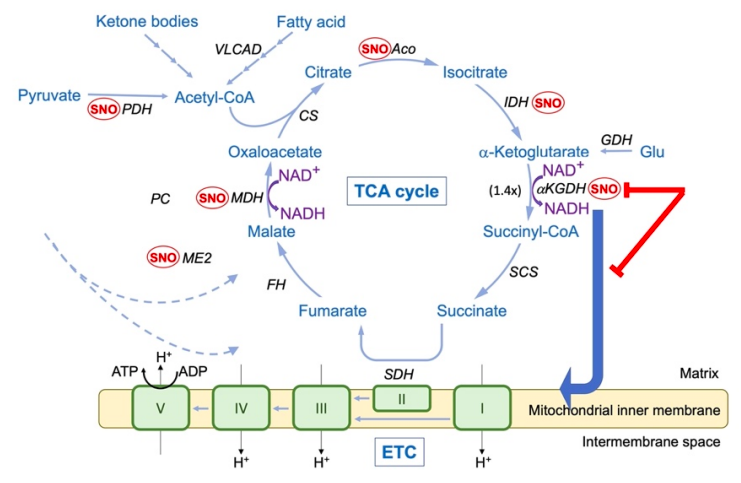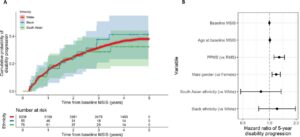
Alexander Y. Andreyev, et al. – Scripps Research Institute.
Background: Mitochondrial dysfunction is a known feature of AD, but the causes of it are unclear. A previous study by this group, using samples from the same AD donors as this study, broadly examined S-nitrosylation, a post-translational modification where nitric oxide (NO.) binds to a cysteine residue. It found a link between reduced estradiol levels and increased S-nitrosylation of complement protein C3, providing a potential explanation for why late-onset AD is more common in women.
This study: Andreyev et al found that in patients with AD, key enzymes in the tricarboxylic acid (TCA) cycle of energy production are inhibited by S-nitrosylation. This effect was also observed in human induced pluripotent stem cell (hiPSC) neurons carrying a mutation linked to familial AD, which have impaired levels of oxidative phosphorylation. Providing dimethyl succinate to “bypass” the inhibited enzymes significantly reduced this metabolic deficit, as well as synapse loss.
Bottom Line: Dimethyl succinate may provide a therapeutic benefit by reducing synapse loss and neuronal metabolic deficits.




